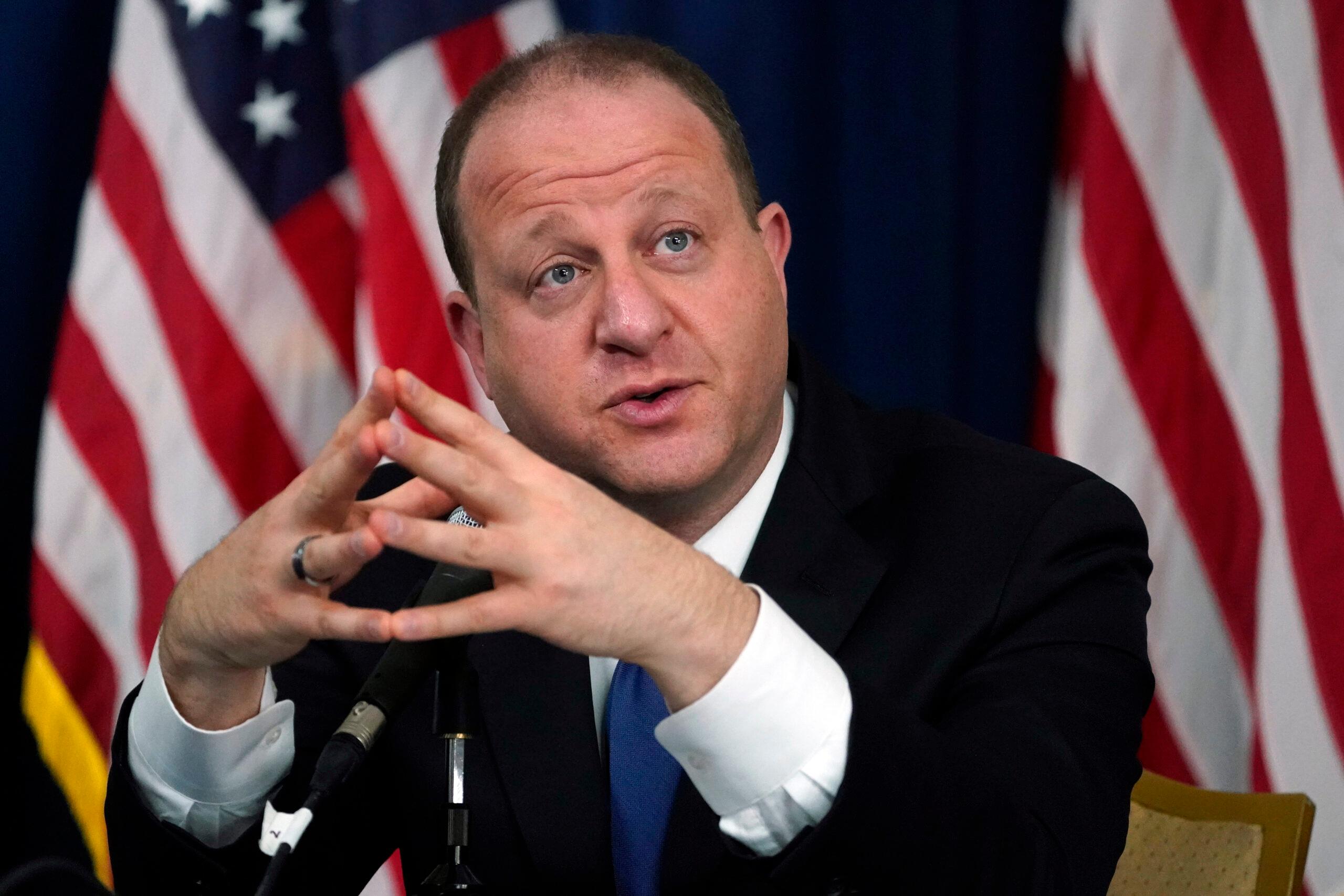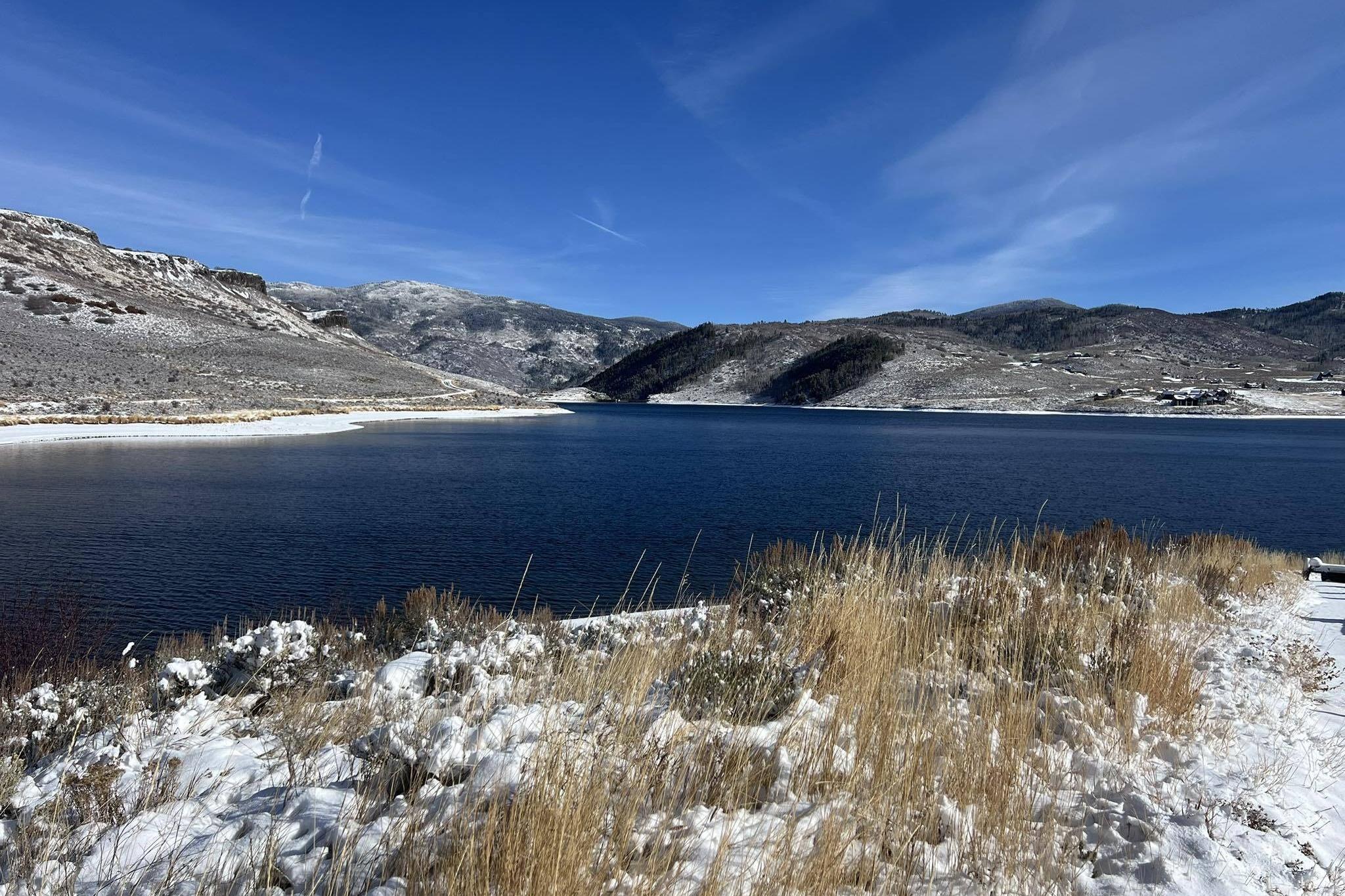
Updated at 9:23 a.m. on April 29
A climate action bill aimed at boosting air regulators' authority advanced in the state senate yesterday and got one step closer to Gov. Jared Polis' desk despite him threatening to veto the bill crafted by members of his own party.
The governor's threat will likely escalate a battle among Colorado Democrats over how to reduce the state’s contribution to global warming.
In a conversation with the Colorado Springs Gazette editorial board earlier this week, Polis said he could not support SB21-200, a climate bill designed to empower air regulators to enforce the state’s greenhouse gas emission-reduction goals. Polis signed those goals into law in 2019. The plan commits Colorado to cut climate-warming emissions 26 percent by 2025, 50 percent by 2030 and 90 percent by 2050 below 2005 emissions levels.
Democratic state lawmakers have since grown frustrated with his administration’s strategy to enforce the action plan, which favors incentives and voluntary collaboration with the private sector over mandatory, enforceable regulations.
The legislation would force the executive branch to switch gears quickly. If passed, the Colorado Air Quality Control Commission would be required to write rules to meet the targets by March 2022. The bill also defines the total emissions from different sectors of Colorado’s economy, such as the transportation and the oil and gas industry.
In his comments to the Gazette, Polis said the legislation amounts to “a top-down requirement and hard-cap bill that would essentially give this unelected board, the Air Quality Control Commission, near-dictatorial control of our entire economy with a legal mandate to meet certain hard carbon reduction goals.”
Polis said major climate regulations should come from the state legislature, not an “unelected board,” referring to the AQCC. The governor appoints members to the committee.
According to a recent climate “roadmap” from the Governor’s Office, existing policies will only get Colorado halfway toward meeting the 2030 emissions reduction target. The plan outlines a number of additional policies to close the gap, including new legislation to encourage building electrification and regulations to promote a switch to electric cars.
Environmental groups have applauded many of those efforts but pushed the governor to adopt enforceable regulations as a “backstop” if specific industries can’t meet the emission reduction goals. A coalition of those groups is now backing the new bill at the state assembly, including Conservation Colorado, the Sierra Club, Western Resource Advocates and EarthJustice.
Democratic Sen. Faith Winter, D-Westminster, one of the bill’s sponsors, said lawmakers remain committed to working with the governor on the legislation.
“Coloradans overwhelmingly want climate action. This legislation merely puts the governor’s own climate roadmap into law. I’m ready to keep working on this bill and there are still many steps left in the legislative process,” Winter said.
Meanwhile, the veto threat has frustrated environmental justice advocates. Renée Millard-Chacon, an indigenous activist and teacher in Commerce City, said many people supported the governor because of his “bold” environmental platform, such as a plan for 100 percent renewable energy by 2040.
But Millard-Chacon said the veto threat showed Gov. Polis can’t see beyond the economics of climate action.
“While he claimed to be an environmental leader early on, he can't compare economic benefits to our health anymore.” Chacon said. “We can’t drink money.”
The legislation must now survive a final committee before a full floor vote in the state Senate.









